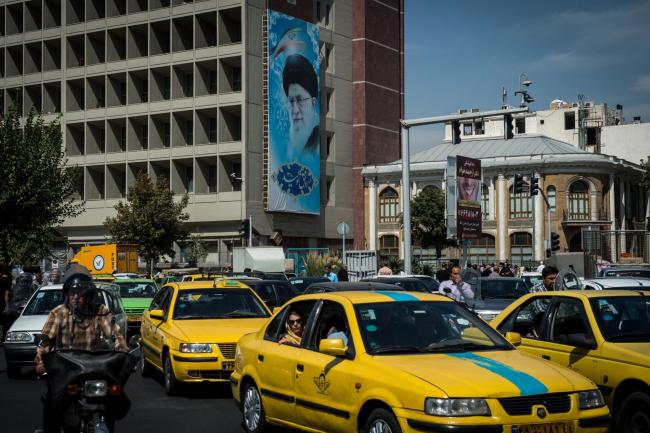(Bloomberg) -- The Trump administration plans to impose sanctions as soon as Thursday on Iran’s financial sector to further choke off its economy from the outside world, according to people familiar with the matter.
The move would effectively leave Iran isolated from the global financial system, slashing the few remaining legal linkages it has and making it more dependent on informal or illicit trade. Earlier rounds of U.S. sanctions have crushed its economy by curbing oil sales and most other trade.
The administration has been weighing the move for weeks, Bloomberg News reported last month. Under the measures, the administration could blacklist as many as 14 banks in Iran that have so far escaped some U.S. restrictions, using authorities designed to punish entities associated with terrorism, ballistic-missile development and human-rights abuses.
The Washington Post reported earlier Wednesday that the sanctions are expected to be announced Thursday.
The measures would have two objectives, according to people familiar with the plans, who asked not to be identified discussing internal deliberations: close one of the few remaining financial loopholes allowing Iran’s government to earn revenue, and stymie Democrat Joe Biden’s promise to re-enter a 2015 nuclear deal if he wins the presidency in November.
Under the plan, the administration would designate the Iranian financial sector under Executive Order 13902, which President Donald Trump signed in January to clamp down on mining, construction and other industries. That would not only affect banks, but also remittance processors, money-changers and the informal transfer system used frequently in the Muslim world known as hawala.
Then the administration would blacklist roughly 14 banks in Iran that have so far escaped some U.S. restrictions, under authorities designed to punish entities associated with terrorism, ballistic-missile development and human-rights abuses.
©2020 Bloomberg L.P.

